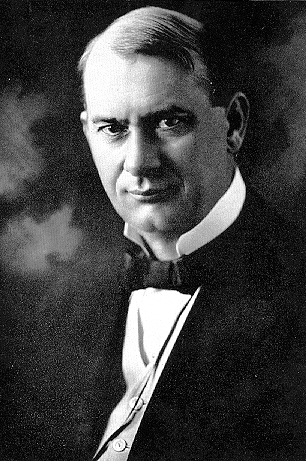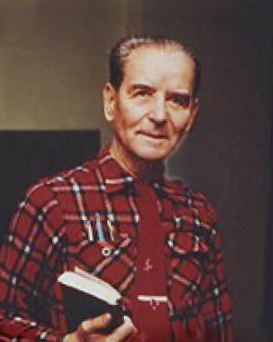
The Eucharist, also called Holy Communion, the Blessed Sacrament or the Lord's Supper, is a Christian rite, considered a sacrament in most churches and an ordinance in others. Christians believe it to have been instituted by Jesus at the Last Supper, the night before his Crucifixion, giving his Disciples bread and wine; passages in the New Testament state that he commanded them to "do this in memory of me" while referring to the bread as his "body" and the wine as "the blood of [his] covenant, which is poured out for many". According to the synoptic Gospels, the Last Supper was a Passover meal.

Jehovah's Witnesses is a nontrinitarian, millenarian, restorationist Christian denomination. In 2023, the group reported approximately 8.6 million members involved in evangelism, with around 20.5 million attending the annual Memorial of Christ's death. Jehovah's Witnesses believe that the destruction of the present world system at Armageddon is imminent, and the establishment of God's kingdom over earth is the only solution to all of humanity's problems.
Jehonadab was the son of Rechab. He is mentioned in 2 Kings 10:15-31. A Kenite, he was a supporter of Jehu, son of Nimshi, in the elimination of the house of Ahab and in suppressing worship of Baal throughout Samaria. Jehu seeks his support at a meeting in the desert and assures Jehonadab of his "zeal for the Lord".
Jehovah's Witnesses' practices are based on the biblical interpretations of Charles Taze Russell (1852–1916), founder of the Bible Student movement, and of successive presidents of the Watch Tower Society, Joseph Franklin Rutherford and Nathan Homer Knorr. Since 1976, practices have also been based on decisions made at closed meetings of the group's Governing Body. The group disseminates instructions regarding activities and acceptable behavior through The Watchtower magazine and through other official publications, and at conventions and congregation meetings.

Joseph Franklin Rutherford, also known as Judge Rutherford, was an American religious leader and the second president of the incorporated Watch Tower Bible and Tract Society. He played a primary role in the organization and doctrinal development of Jehovah's Witnesses, which emerged from the Bible Student movement established by Charles Taze Russell.

Awake! is an illustrated religious magazine published by the Watch Tower Bible and Tract Society of Pennsylvania. It is considered to be a companion magazine of The Watchtower, and is distributed by Jehovah's Witnesses. The Watch Tower Society reports a worldwide circulation of about 12.8 million copies per issue in 252 languages.

Memorialism is the belief held by some Christian denominations that the elements of bread and wine in the Eucharist are purely symbolic representations of the body and blood of Jesus Christ, the feast being established only or primarily as a commemorative ceremony. The term comes from the Gospel of Luke 22:19: "Do this in remembrance of me", and the attendant interpretation that the Lord's Supper's chief purpose is to help the participant prayerfully remember Jesus and his sacrifice on the Cross, and symbolically renew commitment.
Christian observance of Passover is in modern times referred to as Holy Thursday or Maundy Thursday and is held the day before Good Friday. Sometimes a shortened Sedar meal is practiced. Many churches do a washing of the feet of the congregation on this day in recognition of Jesus washing the apostles feet at the last supper. [oremus Bible Browser : John 13:5–14] It marks the end of the Lenten season.

Eucharistic theology is a branch of Christian theology which treats doctrines concerning the Holy Eucharist, also commonly known as the Lord's Supper and Holy Communion.

Frederick William Franz was appointed president of the Watch Tower Bible and Tract Society of Pennsylvania, a legal entity used to administer the work of Jehovah's Witnesses. He had previously served as vice-president of the same corporation from 1945 until 1977 when he replaced Nathan H. Knorr as president. His position as president was administrative, as the Governing Body assumed over-all control of all Jehovah's Witness corporations in 1976. He remained president until his death in 1992.
The Governing Body of Jehovah's Witnesses is the ruling council of Jehovah's Witnesses, based in the denomination's Warwick, New York, headquarters. The body formulates doctrines, oversees the production of written material for publications and conventions, and administers the denomination's worldwide operations. Official publications refer to members of the Governing Body as followers of Christ rather than religious leaders.
Jehovah's Witnesses originated as a branch of the Bible Student movement, which developed in the United States in the 1870s among followers of Christian restorationist minister Charles Taze Russell. Bible Student missionaries were sent to England in 1881 and the first overseas branch was opened in London in 1900. The group took on the name International Bible Students Association and by 1914 it was also active in Canada, Germany, Australia, and other countries.
"Faithful and discreet slave" is the term used by Jehovah's Witnesses to describe the group's Governing Body in its role of directing doctrines and teachings. The group is described as a "class" of "anointed" Christians that operates under the direct control of Jesus Christ to exercise teaching authority in all matters pertaining to doctrine and articles of faith.
The doctrines of Jehovah's Witnesses have developed since the publication of The Watchtower magazine began in 1879. Early doctrines were based on interpretations of the Bible by Watch Tower Bible & Tract Society founder Charles Taze Russell, then added to, altered, or discarded by his successors, Joseph Rutherford and Nathan Knorr. Since 1976, doctrinal changes have been made at closed meetings of the group's Governing Body, whose decisions are described as "God's progressive revelations". These teachings are disseminated through The Watchtower, and at conventions and congregation meetings. Most members of the denomination outside the Governing Body play no role in the development of doctrines and are expected to adhere to all those decided at the Warwick, NY headquarters. Jehovah's Witnesses are taught to welcome doctrinal changes, regarding such "adjustments" as "new light" or "new understanding" from God and proving that they are on the "path of the righteous".
Jehovah's Witnesses believe salvation is a gift from God attained by being part of "God's organization" and putting faith in Jesus' ransom sacrifice. They do not believe in predestination or eternal security. They believe in different forms of resurrection for two groups of Christians: that the 144,000 members of the anointed will be rulers in heaven and that "the other sheep" or "the great crowd" will live forever on a paradise earth.
As of 2023, Jehovah's Witnesses reported a monthly average membership of approximately 8.6 million actively involved in preaching, with a peak of around 8.8 million. Jehovah's Witnesses have an active presence in most countries, though they do not form a large part of the population of any country.
144,000 is a natural number. It has significance in Christianity and Islam.

Some Christian denominations place the origin of the Eucharist in the Last Supper of Jesus with his disciples, at which he is believed to have taken bread and given it to his disciples, telling them to eat of it, because it was his body, and to have taken a cup and given it to his disciples, telling them to drink of it because it was the cup of the covenant in his blood.
The beliefs of Jehovah's Witnesses are based on the Bible teachings of Charles Taze Russell—founder of the Bible Student movement—and successive presidents of the Watch Tower Society, Joseph Franklin Rutherford, and Nathan Homer Knorr. Since 1976, all doctrinal decisions have been made by the Governing Body of Jehovah's Witnesses, a group of elders at the denomination's headquarters. These teachings are disseminated through The Watchtower magazine and other publications of Jehovah's Witnesses, and at conventions and congregation meetings.
This is a bibliography of works on the Jehovah's Witnesses.








